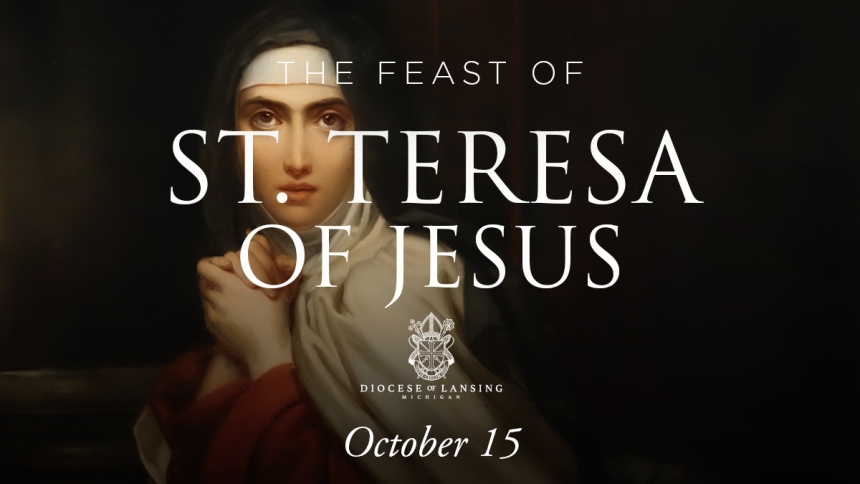
The life of the great 16th century reformer of the Carmelite Order, Saint Teresa of Jesus from Avila in Spain, was, first and foremost, marked by an unshakable trust in God’s providence, writes Sean O’Neill, Editor of FAITH Magazine, October 15.
The prayer Nada te turbe (Let nothing disturb you) is attributed to Teresa: “Let nothing disturb you. Let nothing make you afraid. All things are passing. God alone never changes. Patience gains all things. If you have God you will want for nothing. God alone suffices.”
When teaching her nuns what it meant to be a faithful religious, Teresa put an emphasis on having a good sense of humor. She wrote, “A sad nun is a bad nun … I am more afraid of one unhappy sister than a crowd of evil spirits … What would happen if we hid what little sense of humor we had? Let each of us humbly use this to cheer others.”
In addition to having a healthy sense of humor, Saint Teresa also had a profound sense of wonder at God’s goodness to her, his mercy and his love. And she encouraged many of those around her, religious and laity alike, to follow the path of holiness. She was very aware of the shortcomings of earthly delights, having grown up among the nobility of Spain and having delved deeply into the life of worldly pursuits.
For many of us there are obstacles to loving ourselves in a healthy way. One might be that we don’t recognize how sinful we are because we don’t recognize sin in our lives when we see it. Another might be that we refuse to leave our sinful ways, because we know that God, who is infinitely good, will forgive us anyway. That sin of presumption can stop us from moving forward in the spiritual life and creates a barrier between us and God.
Some of us, on the other hand, are very aware of how weak and sinful we are and can’t believe that God can forgive us, therefore we don’t forgive ourselves. This we call scrupulosity.
And still others of us have a skewed idea of who God is. We may believe that his love is conditional on our good behavior or that God is just waiting for us to slip up so that he can punish us.
All of these attitudes stop us from loving ourselves as we should and therefore also stop us from loving our neighbor in a healthy way.
So, how did Saint Teresa avoid all these pitfalls? By connecting with God, the source of love, in prayer. It’s true that she had a busy schedule, but she made personal prayer and contemplation a priority in her life. We can do the same and by doing so, grow into an awareness of our true identity as beloved sons and daughters of God.
Saint Teresa, pray for us!
